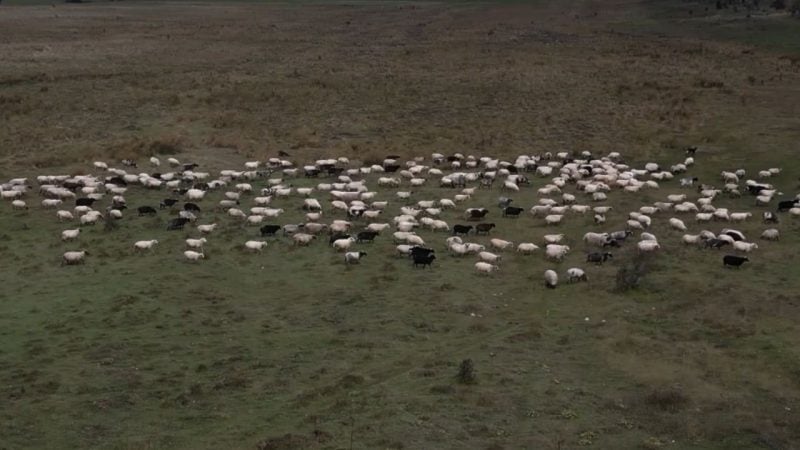 Linda Rama: Between Family, Work and Albania’s Future
Linda Rama: Between Family, Work and Albania’s Future Pigeon Koko cares about 1000 sheep in the Çajupi fields in the south of Albania, one of the richest pastures in the country, also known as the ‘Valley of 1000 flowers’.
The pastoral migration tradition in his family has been inherited from generation to generation since the 19th century.
He tells that the southern region of Albania still preserves this heritage despite the threat of motorization and technology being imposed on livestock farmers. This year he is waiting for the first signs of snow before starting the annual trek to the valley.
“Our family is the third generation to inherit the tradition of nomadic shepherds. Trekking is a beautiful thing inherited from our ancestors and we are preserving it. As you saw yourself, there is a part of organization with the footmen, with bells, with the organization of the journey, the plan of the passages, we have to check the weather for snowfall, as we are in December now. Some of the shepherds make the trek for several days, with caravans, horses and mules because they are distant mountains, they start the trek from the mountains of Korça and reach Saranda, or from Kurveleshi to Saranda”, says the livestock farmer Pëllumb Koko.
“It is good news that the tradition has been included in the UNESCO heretage list. I was spiritually satisfied because it is something passed down through the generations. This could serve tourism, as we have had requests from companies and tourists who have come and experienced the journey with us. Tourists are impressed because these things that we have naturally here, they have them commercialized in the countries they come from”, says Koko.
But Pëllumbi thinks that the sector faces many difficulties which must be heard and solved in order not to further shrink the pastoral life of the Southern mountains.
“More support from state institutions is needed for shepherds, so that they do not become an endangered species. There is a marked decline for the livestock. There are difficulties when summer ends and winter begins, and with it the preparation for the food base, the stables. For the market, the state must help, because the lamb that comes from the import does not have the same quality as the one that grows naturally. The same applies to milk”, says the farmer.
The district of Gjirokastra, the largest livestock district in the country, has registered about 260,000 sheep and 12,000 cattle, in addition to the periodic annual addition, but the number of heads has continually decreased during the last years. Livestock farmers argue that the decline is down to the increase in prices in the economic chain that supports livestock such as cattle food, treatments, transport.
Top Channel








